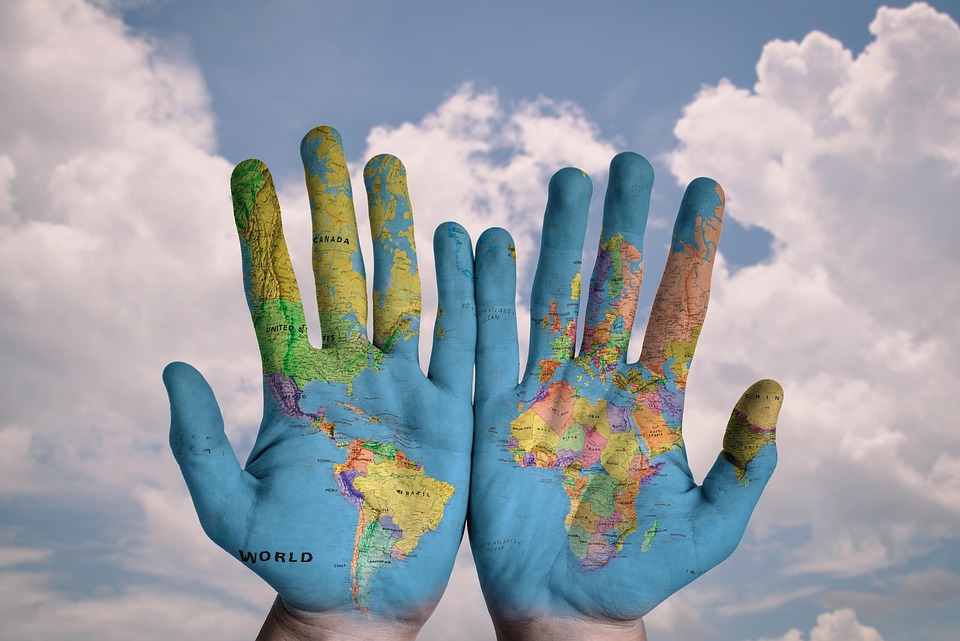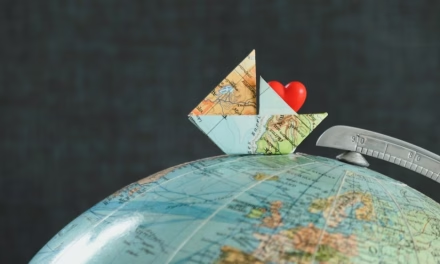The story of human exploration is a tale of bravery, curiosity, and resilience. Throughout history, intrepid adventurers have set sail into the unknown, ventured into uncharted lands, and navigated the remotest corners of the globe. Their discoveries not only charted the world as we know it today but also inspired an insatiable wanderlust that continues to call travellers to explore the world’s wonders. In this article, we delve into the remarkable journeys of some of the greatest world explorers, highlighting their inspiring feats, enduring legacies, and the lessons they leave behind for modern-day adventurers.
From Marco Polo’s detailed accounts of Asia to the boundary-breaking expeditions of Amelia Earhart, these explorers have left indelible marks on the course of travel history. Let’s embark on an adventure through time as we celebrate their achievements and uncover practical insights for aspiring explorers.
Why Are Explorers So Important to Travel History?
Before diving into the stories of these historical figures, it’s worth reflecting on why exploration matters. Explorers are more than just adventurers; they are visionaries who challenge boundaries—geographical, cultural, and psychological. Their work has provided a deeper understanding of our planet, sparked intercultural exchange, and expanded the possibilities of human endeavour.
Exploration teaches us that the journey is just as important—if not more so—than the destination. It’s a mindset in which curiosity fuels learning, and persistence overcomes the greatest obstacles. These trailblazers paved the way for the modern concept of travel, uniting us across continents and inspiring generations to see the world not as a map of divisions but as a shared space to be cherished and understood.
1. Marco Polo: The Trailblazer of the Silk Road
Who Was Marco Polo?
Marco Polo, one of the most famous European explorers of the Middle Ages, was a Venetian merchant who travelled extensively through Asia in the late 13th century. His journey to the court of Kublai Khan and subsequent travels along the Silk Road were chronicled in his book, The Travels of Marco Polo.
Why Was His Journey Significant?
Marco Polo’s travels connected East and West during an era when the two worlds seemed oceans apart. Through his detailed accounts of the many cultures, goods, and customs he encountered, Polo brought the riches of Asia—both material and intellectual—into European consciousness. For instance, his descriptions of the wealth of China and the grandeur of Mongol society intrigued Europeans, inspiring trade and further explorations.
Practical Lesson: Bridging Cultures
Polo’s story reminds us of the importance of cultural exchange. While travelling, take time to understand the local traditions and customs of the people you meet. Greater cultural understanding enriches your own perspective and fosters a sense of global community.
2. Christopher Columbus: The Controversial Discoverer of the New World
Who Was Christopher Columbus?
Christopher Columbus was an Italian navigator and coloniser whose 1492 voyage across the Atlantic Ocean is often credited with “discovering” the Americas. Sponsored by Spain, Columbus set out to find a westward sea route to Asia but instead landed on islands in the Caribbean.
Why Was His Journey Significant?
Columbus’s accidental landing led to the Age of Exploration—a period of intensive European exploration, conquest, and colonisation that reshaped global history. While his endeavours are celebrated for opening up the Americas to European influence, they are rightly scrutinised for their devastating impact on Indigenous cultures.
Practical Lesson: Ethical Travel
Columbus’s story serves as a reminder to travel responsibly, respecting the people and environments we encounter. As modern travellers, we must strive to leave a positive impact, whether by supporting local economies, preserving nature, or advocating for indigenous rights.
3. Ferdinand Magellan: The First Circumnavigation of the Globe
Who Was Ferdinand Magellan?
Ferdinand Magellan’s name is synonymous with groundbreaking sea exploration. A Portuguese explorer who sailed under the Spanish flag, Magellan led the first successful expedition to circumnavigate the Earth in the early 16th century. Though he was killed before completing the journey, his team’s voyage stands as a testament to human ingenuity and courage.
Why Was His Journey Significant?
Magellan’s expedition proved one of humanity’s greatest hypotheses: that the Earth is round and can be circumnavigated. This achievement transformed global trade routes and led to an unprecedented flow of goods, ideas, and cultures around the planet.
Practical Lesson: Perseverance Pays Off
Explorations of this magnitude remind us of the power of persistence. Whether tackling a daunting trek or pursuing personal goals, the ability to adapt, overcome obstacles, and press on leads to transformative growth.
4. Sir Ernest Shackleton: Resilience in the Antarctic
Who Was Ernest Shackleton?
Ernest Shackleton was a British explorer best known for his expeditions to the Antarctic during the early 20th century. His ill-fated Endurance expedition became one of the greatest survival stories in history, showcasing extraordinary leadership and resilience.
Why Was His Journey Significant?
When Shackleton’s ship, Endurance, became trapped in Antarctic ice, the crew was stranded for months in one of Earth’s harshest environments. Shackleton’s ability to navigate these challenges and ensure the safety of his entire crew cemented his legacy as a leader of unparalleled determination and adaptability.
Practical Lesson: Resilience Under Pressure
Modern travel can present its share of challenges—missed connections, language barriers, or logistical mishaps. Shackleton’s story teaches us to stay calm, step into leadership roles when necessary, and remember that every challenge is an opportunity to demonstrate resilience.
5. Amelia Earhart: The Boundary-Breaking Aviator
Who Was Amelia Earhart?
Amelia Earhart was a pioneering American aviator who inspired generations of women to reach for the skies. She became the first female pilot to fly solo across the Atlantic Ocean in 1932 and set numerous aviation records before her mysterious disappearance in 1937 during an attempt to circumnavigate the globe.
Why Was Her Journey Significant?
Earhart shattered stereotypes, defied expectations, and embodied the belief that no dream is beyond reach. Her achievements not only advanced the field of aviation but also encouraged women to seek adventure and accomplish the extraordinary.
Practical Lesson: Embrace Fearlessness
Amelia’s story shows us the importance of defying limitations. In travel and life alike, step out of your comfort zone to uncover your full potential—whether that means hiking a daunting trail or exploring a new city solo.
Inspiring Explorers in the Modern Day
We’ve covered figures from history, but exploration isn’t limited to the distant past. The spirit of discovery lives on in modern adventurers, scientists, and travellers. Figures like mountaineer Sir Edmund Hillary, astronaut Neil Armstrong, and marine biologist Sylvia Earle have carried exploration into the skies, the oceans, and beyond.
These twentieth- and twenty-first-century pioneers show that exploration now goes far beyond physical boundaries. With technology and innovation at our fingertips, the modern-day explorer can even chart new frontiers in space, artificial intelligence, or sustainability.
Final Thoughts: Lessons from the Greatest Explorers
The stories of the greatest world explorers remind us that travel is about more than simply reaching a destination—it’s about challenging ourselves, learning from others, and discovering what’s possible. Whether you’re planning a weekend road trip or dreaming of your own global adventure, you can embrace the explorer’s spirit by staying curious, open-minded, and resilient, no matter what lies ahead.
Frequently Asked Questions (FAQ)
Who were the most famous explorers in world history?
Some of the greatest explorers in history include Marco Polo, Christopher Columbus, Ferdinand Magellan, Ernest Shackleton, and Amelia Earhart. Other notable names include Vasco da Gama, James Cook, and Roald Amundsen.
What makes an explorer great?
Great explorers are defined by their courage, curiosity, and perseverance. They face the unknown with open eyes, overcoming obstacles and leaving lasting legacies that inspire generations to follow in their footsteps.
How can I cultivate the spirit of an explorer in everyday life?
To embrace an explorer’s mindset, seek out the unfamiliar—whether it’s a new neighbourhood or a new culture. Travel often, ask questions, and document your discoveries to share with others. Most importantly, remain curious and open to new experiences.
By looking to history’s greatest explorers, we not only learn about the boundaries they pushed but also reignite the explorer within ourselves. Let their journeys serve as inspiration, reminding us that the world is as vast and marvellous as our willingness to dream big and venture boldly. Happy exploring!












Subscribe To Our Newsletter
Join our mailing list to receive the latest news and updates from our team.
You have Successfully Subscribed!